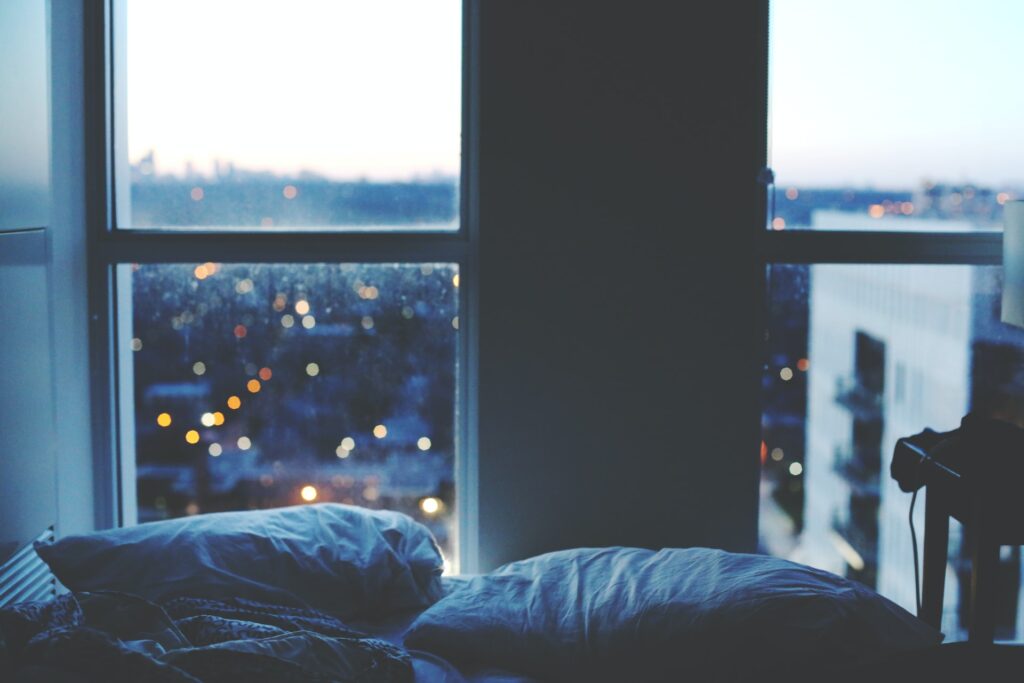
“The best bridge between despair and hope is a good night’s sleep” – E. Joseph Cossman
If anxiety is keeping you up at night, you’re not alone. Anxiety is frequently associated with sleeping difficulties, and many people who struggle with anxiety typically have trouble sleeping. Numerous studies have reported that anxiety not only affects sleep, but sleep can also affect anxiety. Lack of sleep can have a negative impact on your mental and emotional health, exacerbating your anxiety. According to neuroscientists, a chronic lack of sleep can negatively impact emotional health, making it difficult to fall and stay asleep throughout the night, leaving you locked in a cycle of sleep deprivation and anxiety.
Sleep and anxiety are known to affect one another in a variety of ways. Anxiety has been compared to an alarm system that keeps us safe and out of potentially dangerous situations. However, if that alarm goes off all the time for no apparent reason, it can prevent you from getting enough deep sleep. Vital functions occur during various stages of sleep that leave you feeling rested and energised while also assisting you in learning and memory formation. According to research, anxiety can impair rapid eye movement (REM) sleep, the stage of sleep during which vivid dreams occur. Anxiety can result in more vivid and disturbing dreams, which can further disrupt your sleep. People who experience constant or overwhelming anxiety during the day may experience “mental hyperarousal” at night, which can prevent them from falling asleep. Anxiety can also prevent people from falling asleep and staying asleep long enough to feel fully rested. Many people are unaware that their anxiety is interfering with their sleep and frequently attempt to solve the problem by self-medicating with drugs and alcohol.
The following cognitive and behavioural issues can arise as a result of sleep deprivation:
- Feelings of being overwhelmed.
- Inability to concentrate.
- Irritability.
- Nervousness.
- Restlessness.
- Muscle tension
- Feeling on-edge or restless
- Fatigue
- Irritability
- Feelings of impending doom
- Rapid heartbeat
- Avoiding social situations
- Problems in interpersonal relationships
The cumulative long-term effects of sleep loss can range from being unable to fall asleep, feeling fatigued during the day, waking up in the middle of the night due to anxious thoughts, and unsatisfying sleep. Anxiety can cause sleep deprivation by causing you to ruminate or think about the same negative thoughts over and over again with no solution or end in sight. As you fall asleep, you most likely continue thinking about all of the things you are anxious about. Some people even develop what is called sleep anxiety because of their difficulties falling asleep. Due to the difficulty of falling and staying asleep, you may dread going to bed at night you know it will most likely be endless torment by your anxious thoughts.
Prolonged anxiety or sleep deprivation can have numerous detrimental effects on the body, including the following:
- Depression
- Increased risk of hypertension
- Increased risk of Diabetes.
- Increased risk of Heart disease.
- Increased risk of Heart failure.
- High blood pressure.
- Impaired memory
- Lack of alertness
- Arrhythmia (irregular heartbeat).
- Obesity.
- Stroke.
Finally, by understanding how anxiety affects sleep and vice versa, you can determine if it is the cause of your sleep issues. You can then begin to take steps towards managing it in a healthy way, which will not only help you sleep better but will also improve your overall anxiety. If you are struggling with these issues, the best course of action is to educate yourself on how the two affect one another and what steps you can take to manage them properly.
My Practice provides affordable counselling and all profits are reinvested into the organisation to continue providing low-cost counselling and mental health services to our community. If you’re interested in scheduling a free 15-minute consultation with us, book online today.
Sources
NorthStar Transitions. (2021, April 30). How Does Anxiety Affect Sleep? How Does Anxiety Affect Sleep?; www.northstartransitions.com. https://www.northstartransitions.com/post/how-does-anxiety-affect-sleep
ClevelandClinic. (2022). Sleep Anxiety: What is it, Causes, Symptoms & Treatment. Cleveland Clinic; my.clevelandclinic.org. https://my.clevelandclinic.org/health/diseases/21543-sleep-anxiety
Cooper, J. (2021, July 14). Anxiety and Insomnia: Which Comes First? WebMD; www.webmd.com. https://www.webmd.com/sleep-disorders/anxiety-vs-insomnia